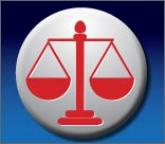Medicolegal Issues
10 strategies for the hot seat: Giving a successful deposition
You aren’t powerless even though you’ve been put under a microscope. A defense attorney offers strategies to remain calm, bolster your position,...
Joseph S. Sanfilippo, MD, MBA Professor, Department of Obstetrics, Gynecology, and Reproductive Sciences, University of Pittsburgh, and Director, Reproductive Endocrinology & Infertility at Magee-Womens Hospital, Pittsburgh, Pennsylvania. He also serves on the OBG Management Board of Editors. | |
Steven R. Smith, JD | |
Shirley M. Pruitt, BSN, JD |
Disclosures
Dr. Sanfilippo reports being on the advisory board for Bayer Healthcare Pharmaceuticals and Smith and Nephew. Mr. Smith reports no financial relationships relevant to this article.

What obligations do you have?
Last month, we began consideration of the obligations of physicians and health-care organizations to take action concerning colleagues who are out of line. In part 1, we looked at a recently reported case of “The gynecologist who wore an unusual pen.” He admitted taking more than 1,000 videos and images of patients using a tiny camera embedded in a pen or key fob that he wore around his neck. This serious misconduct continued for many years without being noticed.
A class-action lawsuit against the medical center and physician resulted in a settlement of $190 million, despite the fact that the physician had not transferred the images to others. Here, we look at the obligation of the medical profession to notice and manage colleagues who are creating a risk to patients or the institution. What are the legal consequences of your relationships with your colleagues, and why is it so important for physicians and health-care centers to be alert to inappropriate conduct and deal promptly with those problems?
CASE: Well-respected clinician turns increasingly grumpy toward colleagues and patients
In your role as president of the practice, you have been asked to comment on a colleague’s behavior. You’ve known him for a long time. Dr. X has been in practice for more than 20 years, and always has been well respected in the community. Over his career he has served as residency program director for a large community hospital. He has been, in essence, a role model for physicians in training.
Over the past 6 months, a number of complaints have been brought to your attention as practice president. The primary concern is Dr. X’s temper, which he seems to be having trouble controlling. Nurses have stopped you in the hallway to discuss his change in attitude. “What’s with Dr. X?” they ask. “We are noticing a change in the way he handles patients and residents in the program.”
Now, the threat of a lawsuit because of his negative behavior has been brought to your attention.
Vicarious liability
This case scenario is becoming more frequent as time and reimbursement pressures mount. Learning to deal with it all in a meaningful manner can be a challenge.
What “checks and balances” do you have regarding colleagues’ behavior in your practice? Ethics come into play here, as we all hear about the cases, although not typical, of the clinician who has sex with his patient, sexual abuse accusations, and so forth. But there are significant legal issues even in much less extreme cases.
When the clinician is not an employee
In part 1, we discussed how and why an employer is responsible for the actions of its employees. In many circumstances, however, hospitals grant privileges to physicians who are not employees. Suppose the gynecologist in “The case of the unusual pen” had not been an employee of the hospital, but had staff privileges. Would the hospital have been liable?
Typically, a clinician with hospital privileges who is not an employee is an “independent contractor” rather than an “agent” of the hospital. As such, the vicarious liability that is a hallmark of a principal-agent arrangement is absent. However, the hospital still may be responsible for the clinician’s misconduct if that liability arises from the hospital’s own carelessness. For example, suppose the hospital had given privileges to a clinician without adequately reviewing his or her credentials, qualifications, and past conduct. Imagine that this clinician had a history of abusing patients but the hospital had failed to ascertain that fact.
A hospital that unreasonably fails to find information that would have prevented a clinician from being given privileges or that would have resulted in the limitation or removal of privileges may be liable for the harm done by the clinician, even when that person is an independent contractor. Furthermore, the failure to observe and assess the professional practice of the independent contractor may result in liability to the hospital.
Review process for hospital privileges. The National Practitioner Data Bank (NPDB) was developed to help hospitals find information about physicians who have been disciplined or had malpractice problems. A query to the NPDB may not be sufficient to discover all relevant information, however. Indeed, the NPDB itself notes that “the information from the Data Bank should be used in conjunction with, not in replacement of, information from other sources.”1 Most institutions have standard protocols for performing background checks on anyone applying for privileges; those processes must be followed carefully and reviewed on a regular basis.
The appointment procedure is the beginning, not the end, of the review process. An ongoing assessment of performance is formalized in committees in all hospitals. In addition, there are formal reappointment processes to assure continued competency and compliance with hospital standards and regulations.
You aren’t powerless even though you’ve been put under a microscope. A defense attorney offers strategies to remain calm, bolster your position,...
Your fate depends on whether you can win over the jury through education, demonstration, and friendly persuasion (Key #4: No putting on airs!)

What details need to be included in office-visit records, written consent form, operative report, and postoperative notes? In this quarterly...
When a colleague is out of line
